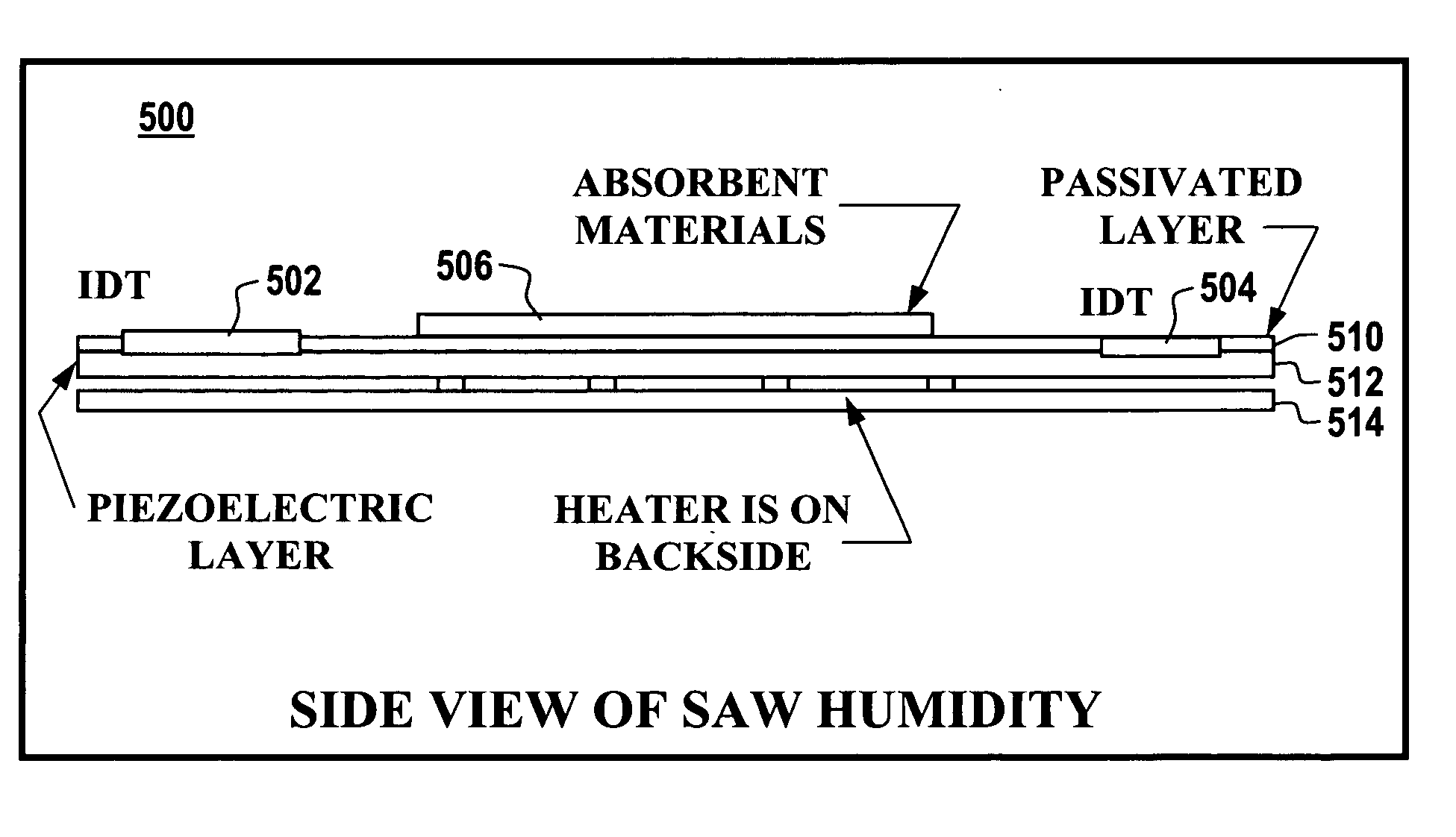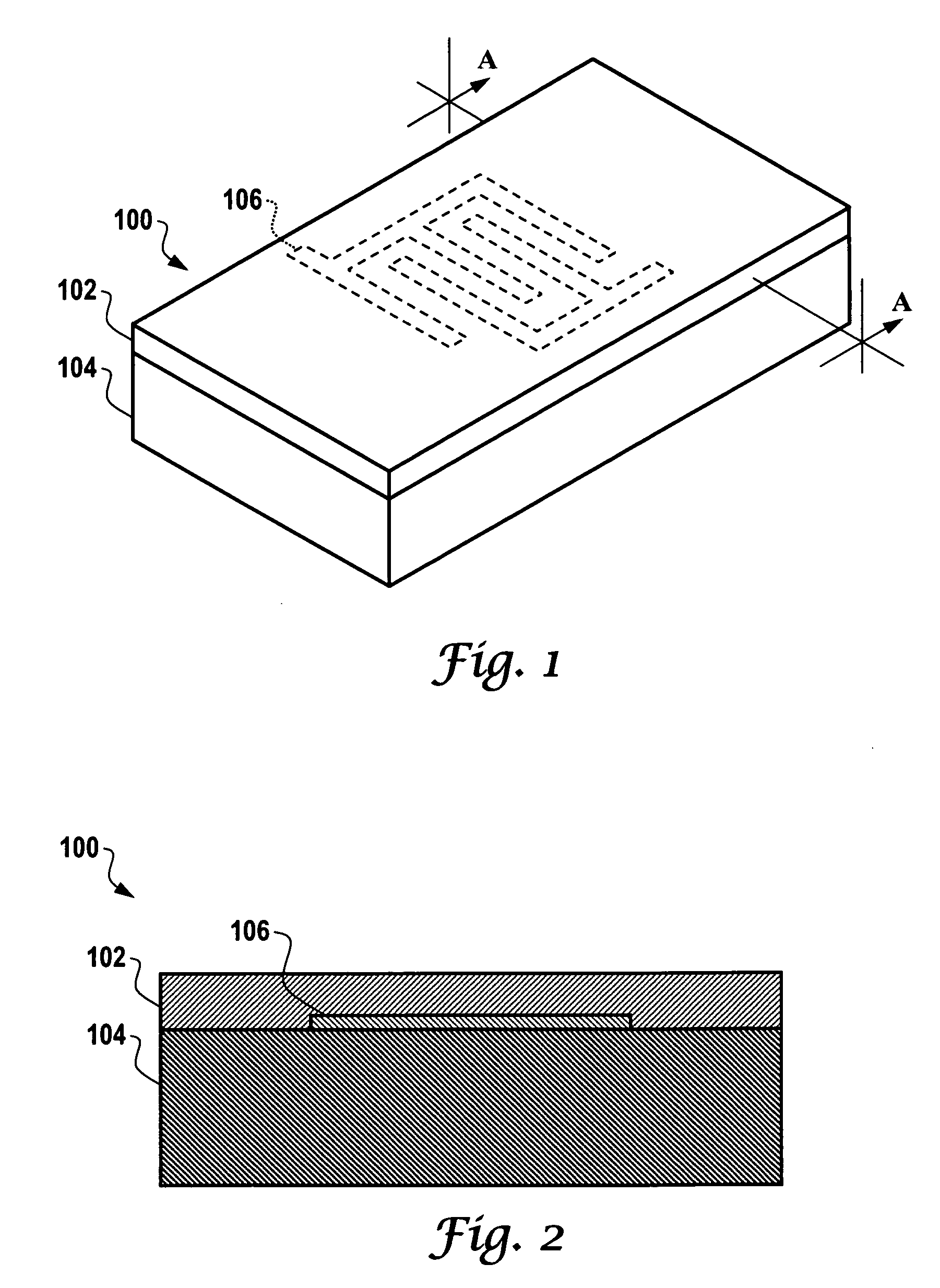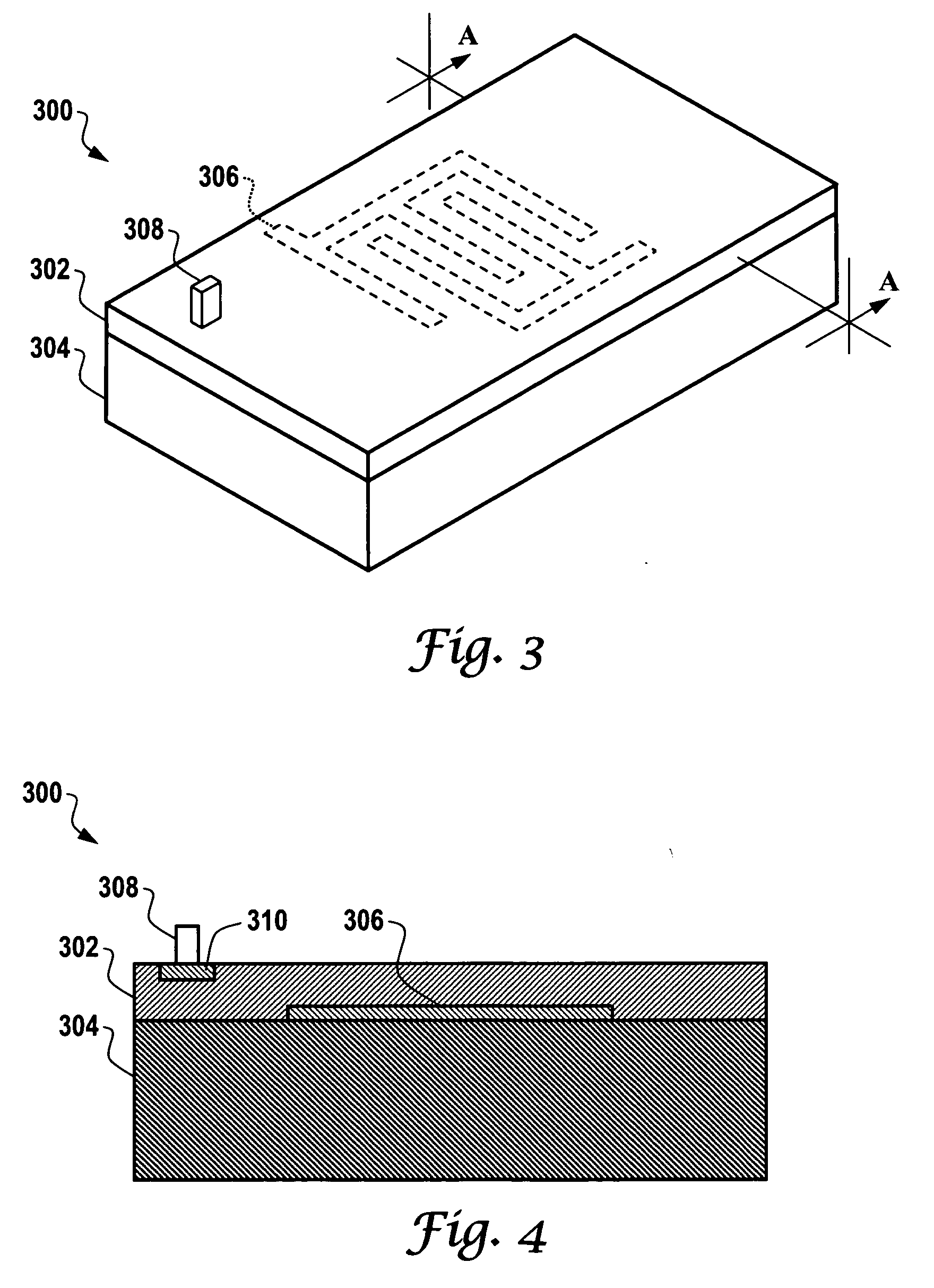Acoustic wave sensor with reduced condensation and recovery time
a technology of acoustic waves and sensors, applied in the field of sensors, systems, can solve the problems of repeated heating, loss of memory of previously learned odors, irreversible change of polyimide films, etc., and achieve the effect of lessening the damping of them
- Summary
- Abstract
- Description
- Claims
- Application Information
AI Technical Summary
Benefits of technology
Problems solved by technology
Method used
Image
Examples
Embodiment Construction
[0034] The particular values and configurations discussed in these non-limiting examples can be varied and are cited merely to illustrate at least one embodiment and are not intended to limit the scope of the invention.
[0035] Many modes of vibrations can exist in an acoustic wave device. Acoustic wave devices are typically designed such that only one mode of vibration is optimized, while other modes are suppressed. Such “undesired” mode(s), however, can be utilized for desorption in affinity / adsorption type sensors. Such modes can include, for example, flexural plate mode (FPM), acoustic plate mode, shear-horizontal acoustic plate mode (SH-APM), amplitude plate mode (APM), thickness shear mode (TSM), surface acoustic wave mode (SAW), bulk acoustic wave mode (BAW), Torsional mode, love wave, leaky surface acoustic wave mode (LSAW), pseudo surface acoustic wave mode (PSAW), transverse mode, surface-skimming mode, surface transverse mode, harmonic modes, and / or overtone modes. Thus, i...
PUM
 Login to View More
Login to View More Abstract
Description
Claims
Application Information
 Login to View More
Login to View More - R&D
- Intellectual Property
- Life Sciences
- Materials
- Tech Scout
- Unparalleled Data Quality
- Higher Quality Content
- 60% Fewer Hallucinations
Browse by: Latest US Patents, China's latest patents, Technical Efficacy Thesaurus, Application Domain, Technology Topic, Popular Technical Reports.
© 2025 PatSnap. All rights reserved.Legal|Privacy policy|Modern Slavery Act Transparency Statement|Sitemap|About US| Contact US: help@patsnap.com



